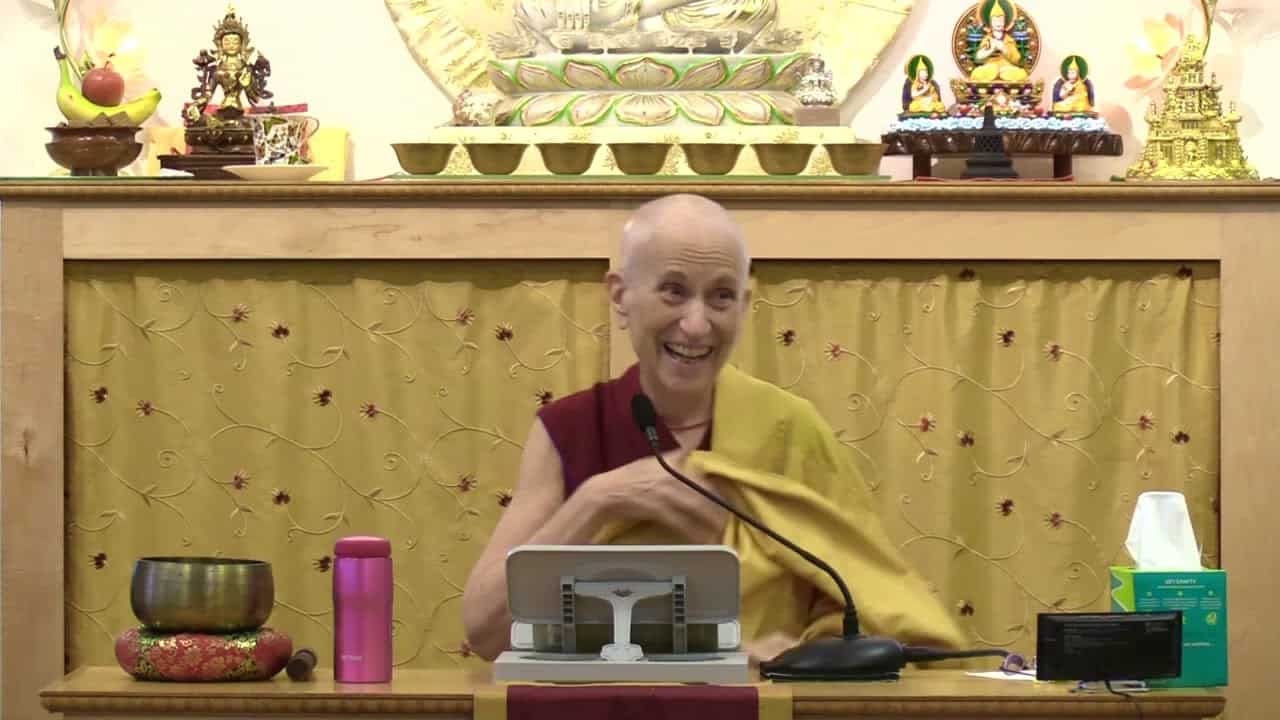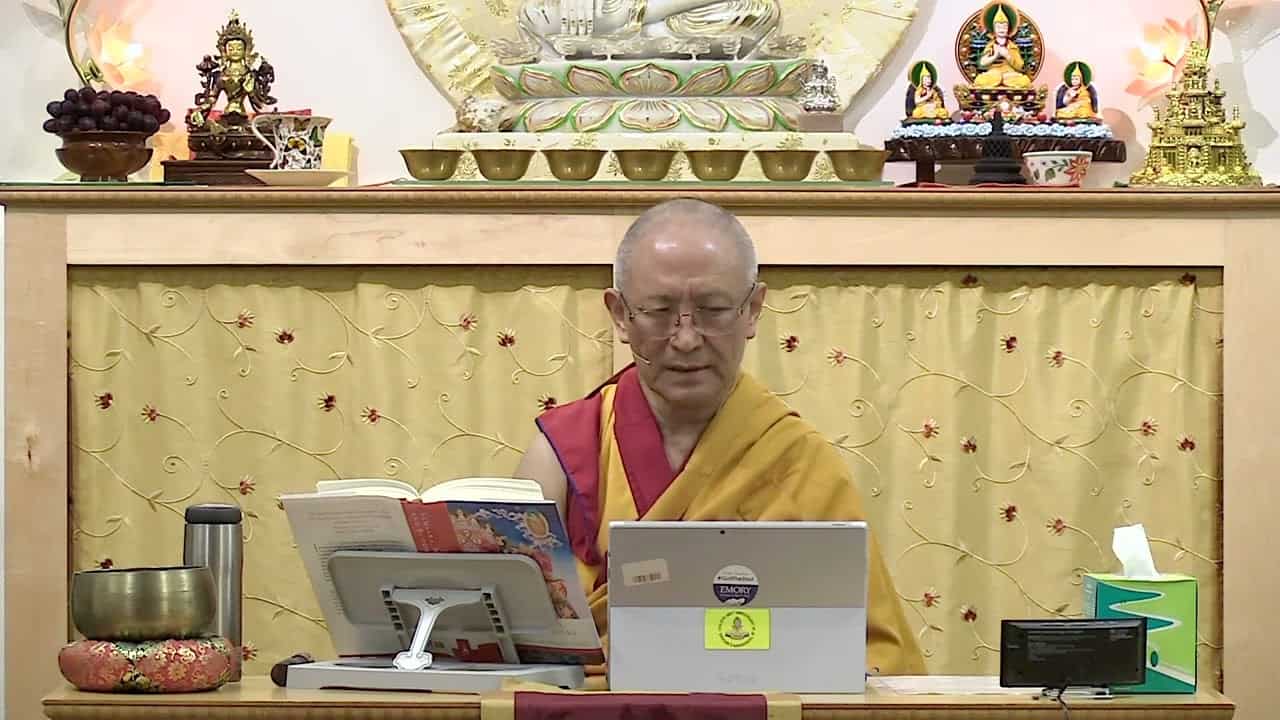Practicing causes for happiness
Rice Seedling Sutra 14
Part of a series of teachings by eminent scholar Geshe Yeshe Thabkhe on the Rice Seedling Sutra. Geshe Yeshe Thabkhe’s commentary explores dependent arising, and the corollary teaching of emptiness.
- Good and bad; suffering and happiness are not something that someone else gives to us
- Why did the Buddha teach dependent arising so often?
- How does the Buddha protect beings?
- Proof presented by other traditions for the existence of a divine creator
Geshe Yeshe Thabkhe
Geshe Yeshe Thabkhe was born in 1930 in Lhokha, Central Tibet and became a monk at the age of 13. After completing his studies at Drepung Loseling Monastery in 1969, he was awarded Geshe Lharampa, the highest degree in the Geluk School of Tibetan Buddhism. He is an emeritus professor at the Central Institute of Higher Tibetan Studies and an eminent scholar of both Madhyamaka and Indian Buddhist studies. His works include Hindi translations of The Essence of Good Explanation of Definitive and Interpretable Meanings by Lama Tsongkhapa and Kamalasila's commentary on the Rice Seedling Sutra. His own commentary, The Rice Seedling Sutra: Buddha’s Teachings on Dependent Arising, was translated into English by Joshua and Diana Cutler and published by Wisdom Publications. Geshela has facilitated many research works, such as a complete translation of Tsongkhapa’s The Great Treatise on the Stages of the Path to Enlightenment, a major project undertaken by the Tibetan Buddhist Learning Center in New Jersey where he teaches regularly.


